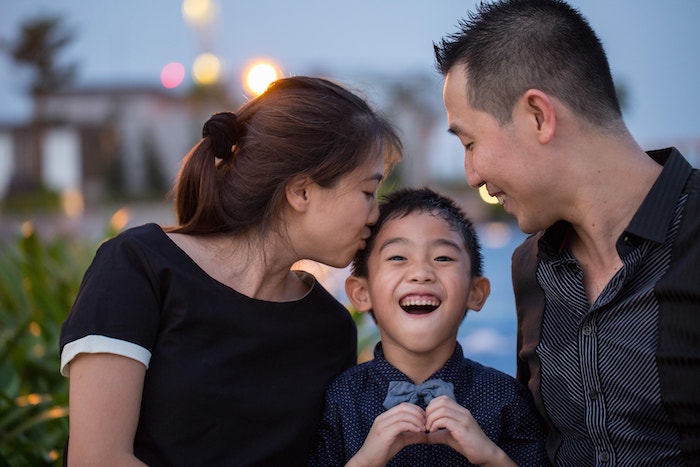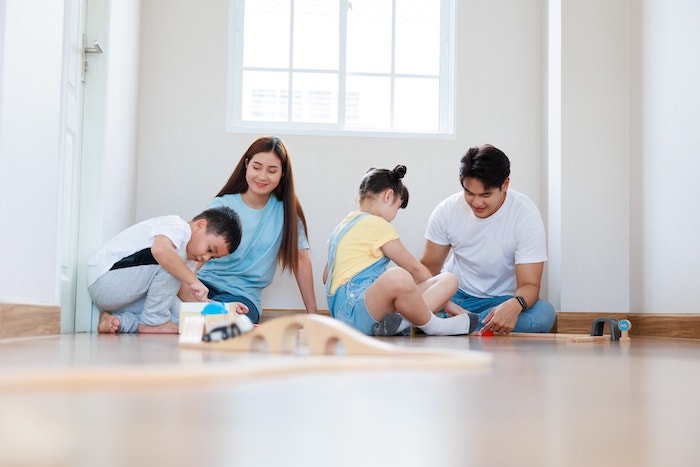Understanding World Understanding and Peace Day

Image source: Freepik
World Understanding and Peace Day, observed annually on February 23rd, serves as a reminder of the importance of fostering global harmony and understanding as one of the important international cultural values. This day, established by Rotary International, offers families an excellent opportunity to reflect on their role in promoting peace within their homes and communities.
By embracing the principles of this day, families can create a microcosm of global understanding and harmony within their own households. Moreover, World Understanding and Peace Day encourages families to explore ways in which they can contribute to a more peaceful world.
This may involve participating in community service projects, learning about different cultures, or simply practicing kindness and compassion within their own home.
World Understanding and Peace Day: The Importance of Cultivating Harmony in Your Family

Cultivating harmony within the family unit is crucial for creating a supportive and nurturing environment. A harmonious family life provides a solid foundation for personal growth, emotional well-being, and the development of healthy relationships. When family members feel valued, respected, and understood, they are more likely to thrive both individually and collectively.
Furthermore, a harmonious family life serves as a model for future generations. Children who grow up in stress-free homes are more likely to replicate these positive dynamics in their own relationships and future families.
It is every family business to prioritize harmony and contribute to a cycle of positive social change that extends far beyond their immediate circle.
Creating a Peaceful Home Environment: Tips and Strategies

Establishing a peaceful home environment requires conscious effort and commitment from all family members. Here are some practical tips and strategies to foster tranquility within your household:
Establish clear communication channels
Encourage open and honest dialogue among family members. Create regular opportunities for sharing thoughts, feelings, and concerns.
Practice active listening
each family members to listen attentively without interrupting, showing genuine interest in each other’s perspectives.
Implement a family meeting routine
Hold weekly or bi-weekly family meetings to discuss important matters, plan activities, and address any issues.
Create a designated quiet space
Designate an area in your home where family members can retreat for reflection, relaxation, or meditation.
Encourage expression through art
Provide materials and opportunities for creative expression, allowing family members to communicate emotions through various art forms.
The Role of Communication in Fostering Family Harmony

Effective communication plays a pivotal role in fostering family harmony. It serves as the foundation for understanding, empathy, and conflict resolution within the household. When family members communicate openly and honestly, they create an environment of trust and mutual respect, which is essential for maintaining harmonious relationships.
Active listening is a crucial component of effective communication. It involves giving full attention to the speaker, acknowledging their feelings, and responding thoughtfully. When family members practice active listening, they demonstrate respect for one another’s perspectives and experiences.
This, in turn, promotes empathy and understanding, which are key elements in maintaining family harmony.
Youth Exchange Students: Bringing the World to Your Doorstep

Hosting a youth exchange student can be a transformative experience for families, offering a unique opportunity to bring global understanding directly into the home.
These programs, often facilitated by organizations with international speakers, like Rotary International, allow families to welcome students from different countries for extended stays. This cultural exchange provides immersive learning experiences for both the host family and the exchange student.
Moreover, hosting an exchange student encourages family members to see their own culture through fresh eyes. As they explain local customs and traditions to their guest, they often gain a new appreciation for their own cultural heritage.
This reciprocal learning process enhances global awareness and cultivates a more inclusive worldview within the family unit.
Upholding World Understanding and Peace Day : Designing a Peaceful Space

Creating a physical space that promotes peace and harmony can significantly impact family dynamics and individual well-being. The design and layout of a home can influence mood, behavior, and interactions among family members.
Intentionally crafting a harmonious living space where families can reinforce their commitment to understanding and peace is a physical reminder of this commitment.
Consider incorporating the following elements to design a peaceful home environment:
Natural elements
Introduce plants, natural materials, and ample natural light to create a calming atmosphere.
Neutral color palette
Use soothing, neutral colors as a base, with accents of calming blues and greens.
Decluttered spaces
Maintain organized, clutter-free areas to reduce stress and promote clarity of mind.
Comfortable gathering areas
Design cozy spaces that encourage family members to come together and interact.
Personal retreats
Create small, private areas where individuals can find solitude and reflection when needed.
Constructive Conflict Resolution: A Key to Family Harmony

Conflict is an inevitable part of family life, but how it is managed can significantly impact overall harmony. Constructive conflict resolution skills are essential for maintaining a peaceful home environment and modeling healthy relationship dynamics.
Here are some key principles of resolving conflict in a constructive manner include:
Active listening: Encourage support by ensuring each party feels heard and understood before attempting to find a solution.
Use of “I” statements: Express feelings and needs without blaming or accusing others.
Focus on the issue, not the person: Address the problem at hand rather than attacking character or past behaviors.
Brainstorming solutions: Encourage all family members to contribute ideas for resolving the conflict.
Compromise and negotiation: Be willing to find middle ground and make concessions when appropriate.
From Family Peace to World Understanding and Peace Day: How Small Actions Make a Big Difference

The journey towards world peace begins with small, everyday actions within the family unit. By cultivating understanding, empathy, and harmony at home, families create a ripple effect that extends far beyond their immediate circle.
These positive influences can spread to neighborhoods, and communities, and eventually contribute to a more peaceful world.
Families can make a difference through simple yet impactful actions:
Practice random acts of kindness: Encourage family members to perform small acts of kindness for others, both within and outside the family.
Volunteer together: Participate in local community service projects to foster a sense of social responsibility.
Support global causes: Choose international charities or causes to support as a family, raising awareness about global issues.
Promote inclusivity: Teach children to be inclusive and respectful of all individuals, regardless of their background or beliefs.
Lead by example: Demonstrate peaceful conflict resolution and respectful communication in all interactions.
Conclusion: Nurturing a Peaceful Home for a More Peaceful World

In conclusion, cultivating understanding and harmony within the family is a powerful step towards creating a more peaceful world.
As families engage with organizations or rotary clubs such as the Rotary Foundation programs, host exchange students, design harmonious living spaces, and draw inspiration from international scholars and business leaders, they expand their worldview and develop a deeper appreciation for global diversity.
These experiences and practices not only strengthen family bonds but also prepare family members to be active, compassionate global citizens.

Celebrate Life’s Milestones in Camella!
House and Lot & Condominium for Sale in the Philippines


